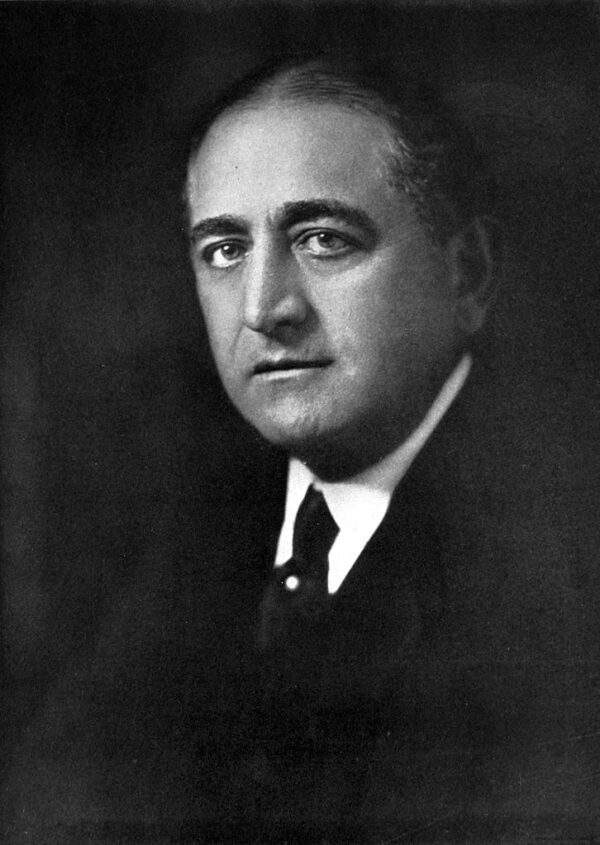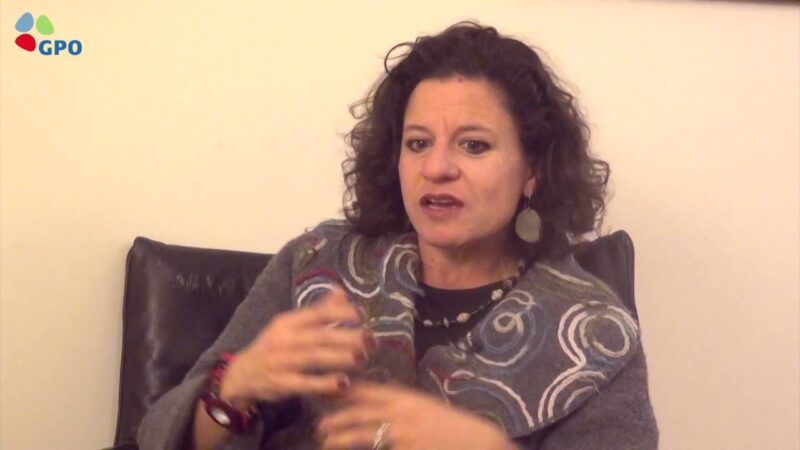The disquieting rise of ideological conformity in major cultural institutions in the United States, a trend that is ominously catching fire, has claimed yet another victim.
Bari Weiss, an editor and writer in The New York Times’ opinion department, resigned on July 14 after three years on staff. She explained her motives in a frank and freewheeling 1,500-word letter addressed to the publisher, A.G. Sulzberger.
A self-described “left-leaning centrist,” she listed several reasons for her decision. In a scathing critique, she charged that “intellectual curiosity” is now “a liability” at the venerable newspaper of record, and that an “illiberal environment” and a “new McCarthyism” are the norms by which it operates.

Lambasting Sulzberger in particular, Weiss wrote, “I do not understand how you have allowed this kind of behavior to go on inside your company in full view of the paper’s entire staff and the public. And I certainly can’t square how you and other Times leaders have stood by while simultaneously praising me in private for my courage.”
The Weiss affair may be a tempest in a teapot in the annals of American journalism, a mere blip on the screen. But from my vantage point, it looks far more serious and has nation-wide implications. It’s essentially about the limits of free speech and the importance of civil discourse in a democracy, two of the themes she has dealt with in her Times pieces.
A week before Weiss’ resignation, 153 American and Canadian artists and intellectuals, including Weiss, signed a letter decrying this lamentable state of affairs.
“The free exchange of information and ideas, the lifeblood of a liberal society, is daily becoming more constricted,” said the letter, which appeared in Harper’s Magazine. The signatories cited “an intolerance of opposing views, a vogue for public shaming and ostracism, and the tendency to dissolve complex policy issues in a blinding moral certainty.”

They added, “We refuse any false choice between justice and freedom, which cannot exist without each other. As writers, we need a culture that leaves us room for experimentation, risk taking, and even mistakes.”
In her letter to Sulzberger, which she posted on her personal website, Weiss warned that the Times has embraced “a new consensus (that) has emerged in the press.” As she put it, “Truth isn’t a process of collective discovery, but an orthodoxy already known to an enlightened few whose job is to inform everyone else.”
Weiss, of course, was referring to the unsettling phenomenon of “cancel culture,” a strain of intolerance that has crept into American society. It’s a variant of political correctness, which already has made itself felt.
Earlier this summer, the editorial page editor of the Times, James Bennet, was forced to resign after an op-ed piece by Senator Tom Cotton (Republican, Arkansas) was published in its pages. Cotton, a conservative, advocated a military response to the widespread unrest and looting unleashed by the wanton murder of George Floyd, an African American man whose tragic death was a reflection of the endemic racism and police violence that afflicts the United States.
Outraged by Cotton’s article, which was in line with President Donald Trump’s view of the protests, more than 1,000 Times employees signed a petition demanding its removal from the online edition.
At The Philadelphia Inquirer, a similar situation occurred. A group of African American editorial employees signed a letter calling into question a headline over a story about protests in the city. Stan Wischowski, the executive editor, was compelled not only to issue an apology, but to step down.
The resignations of Bennet and Wischowski represent a grievous blow to two hallowed notions — free speech and freedom of the press. Newspapers have a duty to report the news objectively and to carry opinion pieces from all corners of the political spectrum. But in the current climate, these essential hallmarks of democracy are downgraded and are in danger of being shunted aside.
Just ask Bari Weiss.
Weiss, in her missive to Sulzberger, rightfully complained that “stories are chosen and told in a way to satisfy the narrowest of audience.”
The author of How To Fight Anti-Semitism, she disclosed that her own experiences with “Wrongspeak” had exposed her to “constant bullying by colleagues,” who disagreed with her views, condemned her as a Nazi, bigot and racist, and griped that she was writing about “the Jews again.”
Claiming that “self-censorship” is all too common at the Times nowadays, Weiss noted, “If a person’s ideology is in keeping with the new orthodoxy, they and their work remain unscrutinized. Everyone else lives in fear …”
Weiss accused the Times of of hypocrisy, and her point was well taken. While Cotton’s op-ed piece “fell short of our standards, as the Times lamely explained to readers, no such notice was attached to a “fawning interview” with the novelist Alice Walker, “a proud antisemite …”
According to Weiss, Times reporters and editors must abide by stringent rules. “Rule one: Speak your mind at your own peril. Rule Two: Never risk commissioning a story that goes against the (accepted) narrative. Rule three: Never believe an editor or publisher who urges you to go against the grain. Eventually, the publisher will cave in to the mob, the editor will get fired or reassigned, and you’ll be hung out to dry.”

In closing, Weiss said she “can no longer do the work” that brought her to the Times from The Wall Street Journal in 2017. In 1896, Times publisher Adolph Ochs, in a mission statement, expressed the hope that its columns would become “a forum for the consideration of all questions of public importance, and to that end to invite intelligent discussion from all shades of opinion.”
Judging by Weiss’ resignation, it would appear that the Times has lost sight of this worthy goal.
Jodi Rudoren, the editor of The Forward and a former Times correspondent in Israel, regards her departure as an ominous sign that the range of acceptable opinion at that daily is narrowing.

In a commentary on July 15, she wrote, “A New York Times that has no place for Bari Weiss is a weaker New York Times. A New York Times Bari Weiss feels she must leave is a New York Times not living up to its own ideals. A New York Times without Bari Weiss’s voice, and the voices she has cultivated, is thinner, duller, less original and just plain less valuable for all of us who depend on it.”
As a longtime reader of the Times, I’m concerned that the Weiss fiasco may be only the tip of an iceberg, the weight of which will crush everything in its path.
Let Weiss’ cri de coeur serves as a warning that political conformity has no place in journalism, that a free press cannot be taken for granted, and that the totalitarians who want to shape it for their own ideological ends should be exposed.
